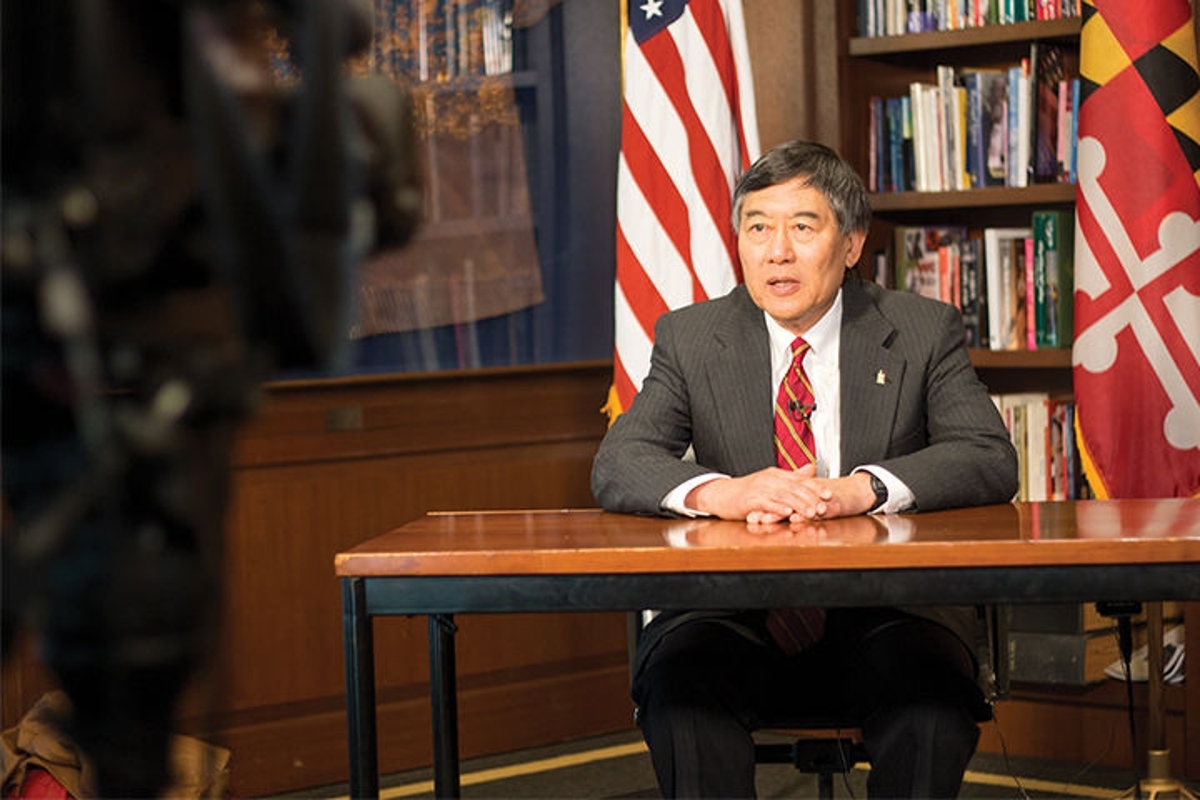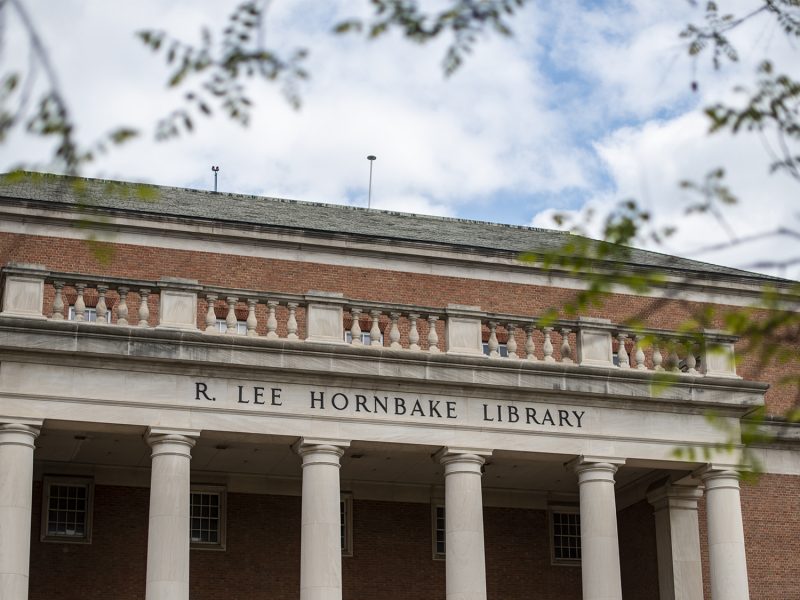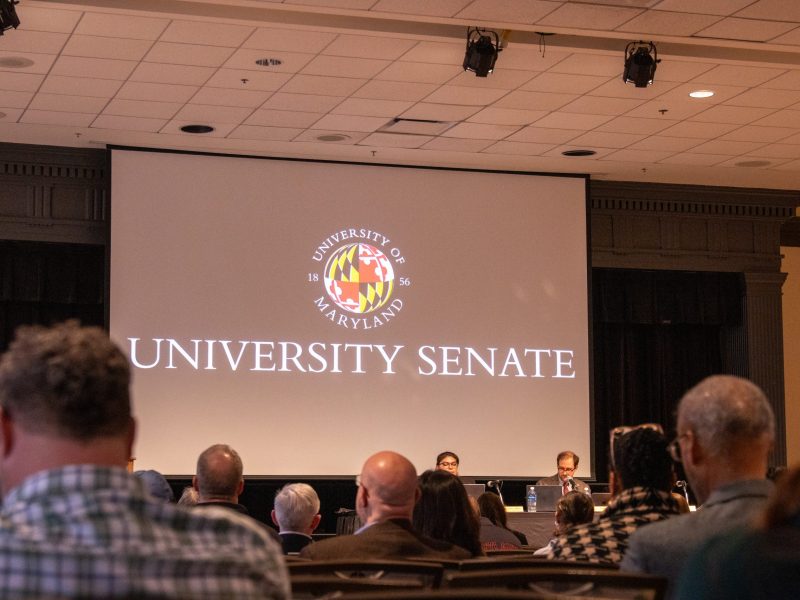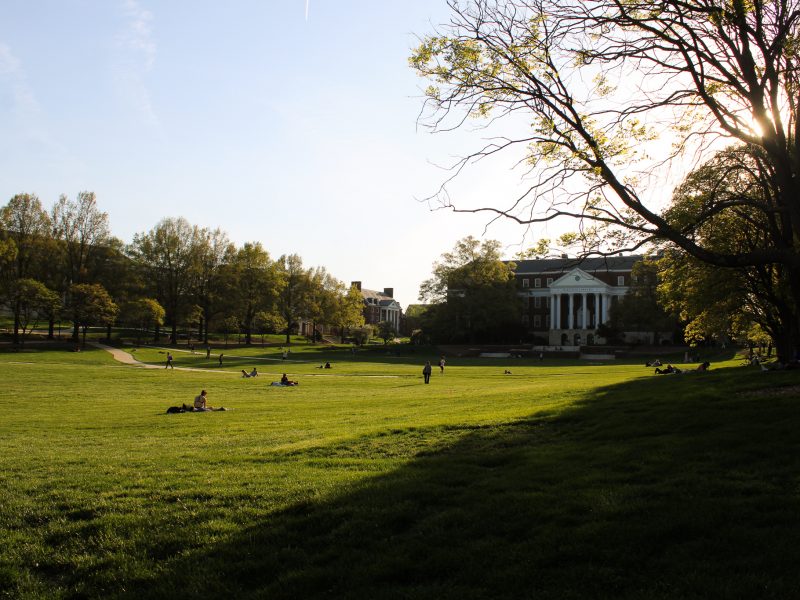University of Maryland President Wallace Loh approved recommendations provided by his sexual assault prevention task force for how to continue addressing the issue on the campus.
In a statement released Tuesday, Loh commended the work of the Joint President/Senate Sexual Assault Prevention Task Force — made up of 16 faculty, staff and students including former SGA President Katherine Swanson. Loh said he’d start implementing the guidelines, which include mandatory in-person training for all incoming students, this summer.
“To create a campus that is free from all forms of sexual misconduct is an ambitious and essential undertaking that is in the interest, and is the responsibility, of every member of our University community,” Loh wrote. He signed the measure on April 25.
In his statement, Loh did not describe how this implementation would occur, or what additional resources, if any, would be applied to the effort.
This university added six new positions between the Office of Civil Rights and Sexual Misconduct and CARE to Stop Violence last semester after the Student Government Association proposed a $34 annual student fee to increase funding for the Title IX office.
As a result of Loh’s approval, all incoming freshmen, Freshmen Connection and transfer students will be required to complete in-person bystander intervention training this fall. Second-year undergraduate students will need to complete online training as of fall 2018 and third year undergraduate students will face this requirement as of fall 2019, according to the task force report.
Efforts to boost sexual misconduct education on the campus have led to more reported cases and investigations, according to senate documents. Between the 2014-15 and 2015-16 academic years, sexual misconduct reports increased by 64 percent, according to the Office of Civil Rights and Sexual Misconduct’s 2015-16 Student Sexual Misconduct Report.
This university’s student group Preventing Sexual Assault held a 10-hour sit-in on McKeldin Mall on April 3 to bring attention to the issue of sexual assault by aiming to educate students about the topic and provide an outlet for sexual assault survivors. Hundreds participated throughout the day, and dozens shared their stories, including three women who had publicly accused Bill Cosby of sexual assault.
[Read more: UMD Senate votes to mandate sexual assault prevention training for new students]
The university already requires online compliance training for faculty, staff and students, but this measure would expand them. At last summer’s freshmen orientation sessions, for example, students viewed a video presentation about sexual assault prevention and participated in a small group discussion on the subject. The new guidelines would expand this to include a 50-minute bystander intervention training presentation.
The report also called for a centralized website containing all of this university’s resources regarding sexual assault to be in place by fall 2018.
There will also be online training for student organization leaders — a group’s president and at least one other leader — as of fall 2019, as well as graduate student orientation programming as of fall 2018, a new faculty orientation presentation by fall 2018 and online graduate assistant programming as of fall 2019.
The task force, which was created in October 2016, crafted these recommendations over a six-month period. The University Senate approved the recommendations on April 19.
This university’s policy recommends the Title IX office resolve sexual misconduct cases within 60 business days, but many of these investigations take at least twice as long. As of late January, this university and at least 223 others are under investigation by the U.S. Education Department’s Office for Civil Rights for their handling of sexual violence issues.
This story will be updated as more information becomes available.



